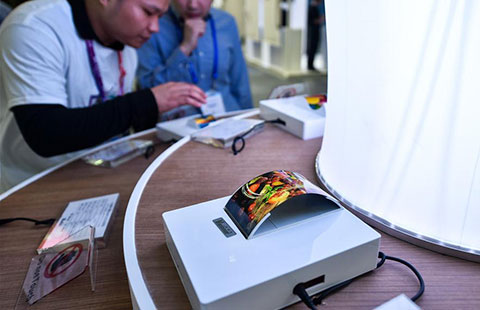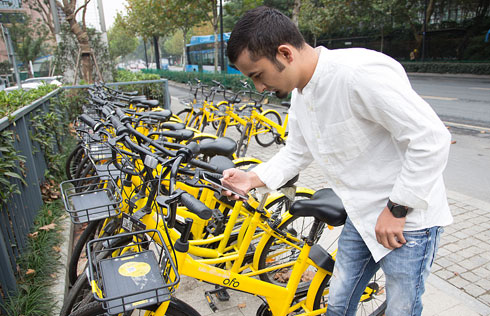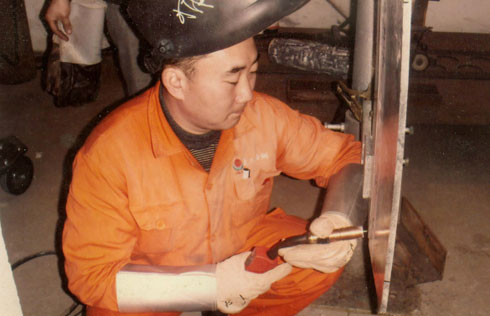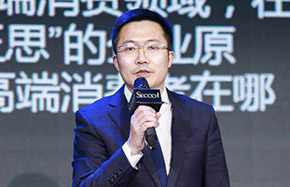Fosun funding confirms Aubo's rise in co-robots
Aubo (Beijing) Robotics Technology Co Ltd, a Chinese collaborative robot (or co-robot/cobot) maker, raised 60 million yuan ($9 million) in series A funding from Fosun Group on Nov 7.
Fosun is bullish on China's co-robot market and expects Aubo to win 30 percent share of the local market, which is forecast to reach 1.3 billion yuan by 2020.
Unlike traditional industrial robots, a co-robot can interact with human co-workers in a shared workspace without imperilling the latter. In contract, industrial robots are mostly operated autonomously or with limited human guidance.
Factors including China's ageing population, and Chinese enterprises' more flexible requirements are helping the rise of co-robots, an industry report said.
Fosun's investment will facilitate Aubo's research and development efforts, and help expand co-robot production.
In June 2015, Zhejiang Dun'an Artificial Environment Co Ltd made the initial investment in Aubo by pumping in 60 million yuan.
"Fosun hopes to assist Aubo become a unicorn (a startup with a valuation of $1 billion or above). The investment in outstanding innovative enterprises will bring Fosun high returns," said Tang Bin, senior vice-president of Fosun Group.
Fosun will continue to look for opportunities to increase its stake in Aubo, he said.
"The era of cobots being unable to deliver the accuracy and efficiency of industrial robots is going to end," said Wei Hongxing, chairman of Aubo Robotics.
Since 2013, China has been the world's largest industrial robot market. Last year, 88,992 industrial robots were sold across the country, up nearly 27 percent year-on-year, according to the China Robot Industry Alliance.
Foreign brands such as ABB, Kuka, Fanuc and Yaskawa command 80 percent of the local market share, said Wei.
Cobots could help Chinese robot manufacturers to wrest back market share from their international counterparts, he said.
For, in the emerging cobot R&D, only a narrow gap separates Chinese makers and foreign manufacturers.
Also, made-in-China cobots cost nearly 20 percent less on average, thanks to resources being available in close proximity to production centers, according to an industry blue paper on cobots published on Nov 8.
The report was jointly published by Shenzhen Gaogong Industry Research Consulting Co Ltd and Universal Robots, a Danish manufacturer of smaller and flexible cobots.
"China is going to witness a sales spurt in collaborative robots," the report stated, adding that cobot sales will swell more than four times in four years to 12,000 units in China by 2020.
Their main target clients will be medium and small-sized enterprises.
Ni Guangnan, an academic at the Chinese Academy of Engineering, said Aubo serves as an example for Chinese manufacturers to reach the same competence level of companies of developed nations.
As many as 2,300 cobots were sold in China last year, up 109 percent year-on-year. The market size rose 84 percent to 360 million yuan.
Aubo has an ambitious plan to increase the annual output to 30,000 units in three to five years and become a public company by 2020.

























